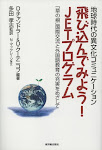 If you had to choose one person who embodied the moral aspirations of Hong Kong, a person whose love for justice extended to all of China, it would be Szeto Wah. He's been on the frontlines for almost forty years fighting relentlessly for human rights and democracy. But no more. Earlier this week he succumbed to lung cancer. He was 79.
If you had to choose one person who embodied the moral aspirations of Hong Kong, a person whose love for justice extended to all of China, it would be Szeto Wah. He's been on the frontlines for almost forty years fighting relentlessly for human rights and democracy. But no more. Earlier this week he succumbed to lung cancer. He was 79.  Szeto began as his career in 1952 as a primary school teacher in the hardscrabble district of Kwun Tong, eventually becoming a headmaster. In 1973, he headed Hong Kong's first city-wide teachers' strike after the British colonial government tried to cut wages by a whopping 15 per cent. Realizing that teachers were vulnerable, he helped form the Professional Teachers' Union the following year. It's since blossomed into one of the city's largest with a membership of 85,000, including me.
Szeto began as his career in 1952 as a primary school teacher in the hardscrabble district of Kwun Tong, eventually becoming a headmaster. In 1973, he headed Hong Kong's first city-wide teachers' strike after the British colonial government tried to cut wages by a whopping 15 per cent. Realizing that teachers were vulnerable, he helped form the Professional Teachers' Union the following year. It's since blossomed into one of the city's largest with a membership of 85,000, including me. 
Szeto Wah beside the "Pillar of Shame" at Hong Kong University commemorating June 4, 1989.Following his success with the PTU, Szeto became a legislator and briefly worked with Beijing to draft Hong Kong's Basic Law - our mini constitution - in preparation for the 1997 British handover. This stint ended abruptly when Beijing turned the tanks on its own citizens in the early hours of June 4, 1989. In the weeks prior to the massacre, Szeto had founded the Hong Kong Alliance in Support of Patriotic Democratic Movements of China, which he remained in charge of right up to the end of his life.
 In the fevered aftermath of the massacre, the group spearheaded "Operation Yellow Bird," the codename for a plan to rescue the leaders of the Tiananmen movement who were on the run in mainland China. He helped raise funds from the people of Hong Kong and smuggled them into the territory via underground and pirate channels. One was Wu'er Kaixi, now based in Taiwan and who is seeking to attend Szeto's funeral at the end of this month. Branded a criminal on the mainland, it's still not certain if Wu'er will be allowed to enter Hong Kong, despite our much lauded "One country, two systems."
In the fevered aftermath of the massacre, the group spearheaded "Operation Yellow Bird," the codename for a plan to rescue the leaders of the Tiananmen movement who were on the run in mainland China. He helped raise funds from the people of Hong Kong and smuggled them into the territory via underground and pirate channels. One was Wu'er Kaixi, now based in Taiwan and who is seeking to attend Szeto's funeral at the end of this month. Branded a criminal on the mainland, it's still not certain if Wu'er will be allowed to enter Hong Kong, despite our much lauded "One country, two systems." These actions predictably earned Szeto the wrath of Beijing. He was banned from the mainland and villified as a subversive, but none of this phased him. He remained an unwavering advocate for democracy and for the vindication of the Tiananmen Square protesters, helping to organize Hong Kong's annual Candlelight Vigil every June 4th and supporting the "Tiananmen Mothers." When asked how he felt about China, he expressed the popular sentiment in Hong Kong, saying, "I am a patriot. I love China. I just don't like the government."
These actions predictably earned Szeto the wrath of Beijing. He was banned from the mainland and villified as a subversive, but none of this phased him. He remained an unwavering advocate for democracy and for the vindication of the Tiananmen Square protesters, helping to organize Hong Kong's annual Candlelight Vigil every June 4th and supporting the "Tiananmen Mothers." When asked how he felt about China, he expressed the popular sentiment in Hong Kong, saying, "I am a patriot. I love China. I just don't like the government."A memorial service will be held in Victoria Park on February 27 to pay tribute. The funeral will be held on January 29 at St Andrew's Church in Tsim Sha Tsui.










No comments:
Post a Comment